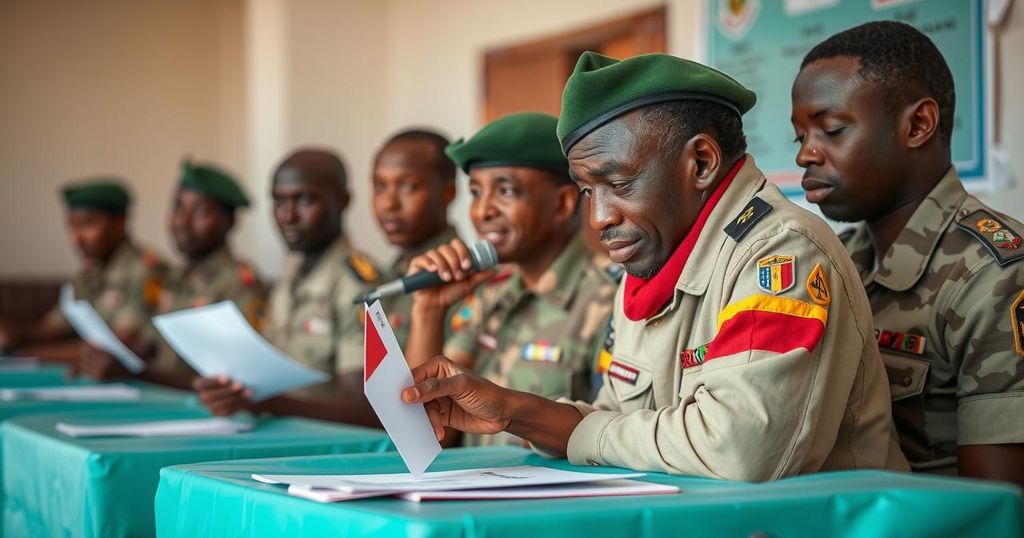Chad Holds Elections Amidst Boycott and Claims of Fraud

Chad is conducting legislative, provincial, and local elections after three years of military rule, but opposition parties are boycotting the polls, citing electoral fraud. Allegations of ballot tampering have emerged, and concerns about media coverage persist amid ongoing violence and political tensions.
On Sunday, the Chadian electorate is participating in a triad of elections comprising legislative, provincial, and local polling, marking an end to three years of military governance. However, the elections have been significantly undermined by a boycott led by opposition parties, who argue that the legitimacy of last year’s presidential election was compromised by widespread fraud. This boycott effectively clears the way for candidates supporting Marshal Mahamat Idriss Itno, who has been in power since 2021 and held a disputed electoral process last May, condemned by detractors as fraudulent.
Opposition leader Succes Masra vocally criticized the electoral process, urging potential voters to abstain from participating. He articulated his sentiment through a Facebook live session, stating, “It is better to stay at home,” and accused the ruling government of operating within a framework of deceit and electoral manipulation. Furthermore, the Democratic Party of the Chadian People (PDPT) reported allegations of electoral fraud, including the suspicious disappearance of a thousand ballots destined for the Bongor sub-prefecture, urging citizens to remain vigilant against irregularities purportedly orchestrated by the ruling party.
Despite the tensions, polling stations are open from 6:00 AM to 6:00 PM for nearly eight million registered voters, under the scrutiny of foreign observers and political representatives. Initial voting commenced a day prior for military personnel, police forces, and nomadic citizens. The elections unfold in a context marked by ongoing violence from the jihadist group Boko Haram and increasing diplomatic strains with France, alongside accusations of Chadian interference in Sudan’s chaotic circumstances.
The government, led by the 40-year-old Itno, is presenting these elections as a crucial step towards reinstating democratic governance after his father’s authoritarian regime, which lasted three decades until his death. While the legislative elections were last held in 2011, subsequent attempts were thwarted by security threats, financial limitations, and the global pandemic. A transitional parliament was established by presidential decree in 2021, yet the opposition claims a troubling increase in autocracy and state repression.
As voting continues, the absence of coverage by the private press due to recent journalist strikes raises concerns about information dissemination surrounding the elections, further complicating the political atmosphere in Chad. The government’s failure to provide necessary subsidies for media coverage exemplifies the ongoing challenges faced by the opposition and raises questions about the transparency of the electoral process that is underway.
The elections in Chad represent a pivotal moment following a three-year period of military control after the death of long-time dictator Idriss Deby Itno. His son, Marshal Mahamat Idriss Itno, assumed leadership amidst claims of political transition. The legitimacy of the electoral process has been heavily contested, particularly following last year’s presidential results, which the opposition deemed fraudulent. This backdrop of distrust has culminated in a boycott of the current elections, creating increased tensions within the country.
The elections in Chad serve as a critical juncture in its political landscape, witnessing a boycott from opposing forces amid claims of fraud and autocratic governance under Marshal Itno. As the electorate engages amid allegations of electoral fraud and restrictions on press coverage, the prospects for a meaningful democratic transition remain uncertain. The political climate highlights the challenges facing Chad as it endeavors to navigate its future amidst domestic and regional complexities.
Original Source: www.france24.com







